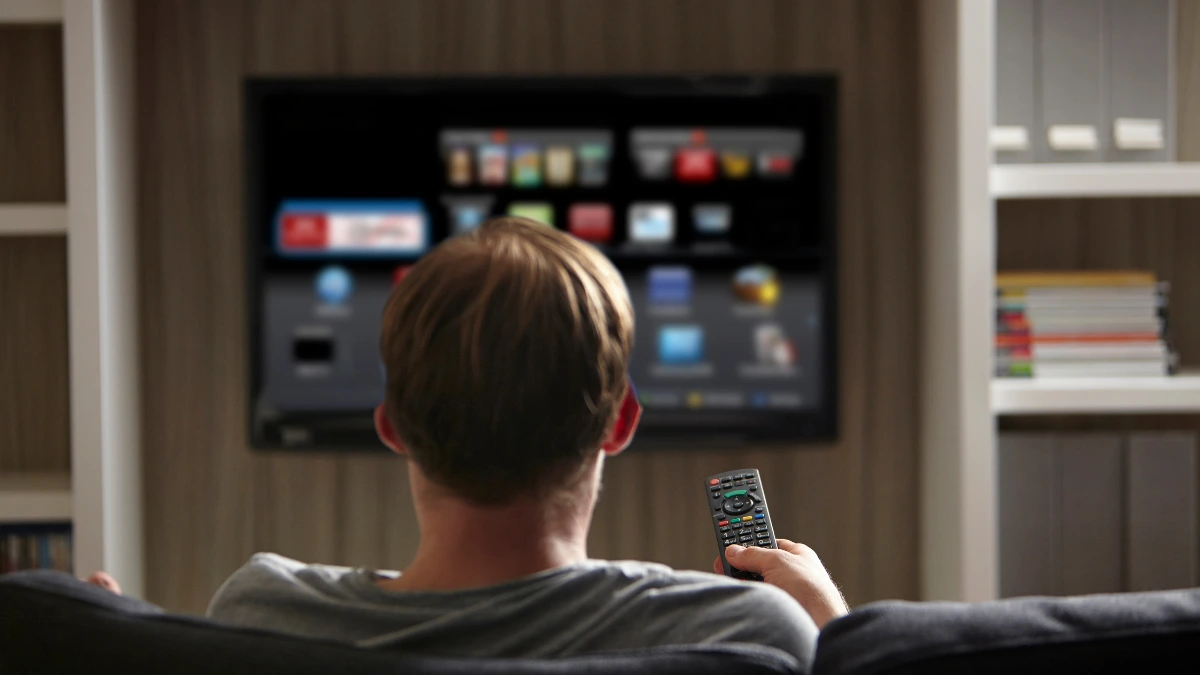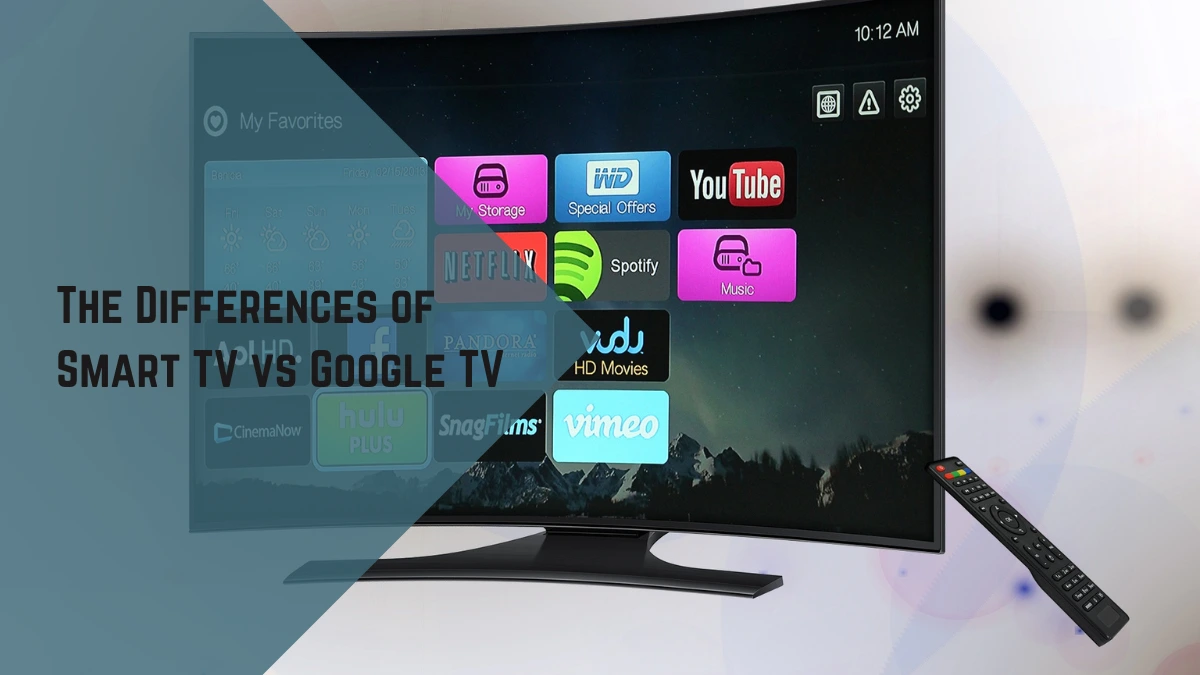In today’s world, Smart TV and Google TV are nearly ubiquitous in homes. However, are you aware that there is a difference between Smart TV vs Google TV?
At first glance, they might seem quite similar, but Smart TV vs Google TV there are notable distinctions between the two in various areas, such as apps, screen mirroring, and screen casting.
In this article, we will explore 5 key differences between Smart TV vs Google TV, focusing on aspects like application programs, operating systems, voice assistants, and screen mirroring and casting.
What is a Smart TV?

A smart TV is a TV that can interface with the internet and run different applications. With its internet capabilities, smart TV allows users to access online services such as streaming video, music, games, as well as web browsing, and more.
Some smart TV models also offer additional features such as integration with smart home devices, so that this TV can function as a smart home control center.
What is Google TV?

Google TV is a smart TV platform developed by Google and is an extension of Android TV. This platform is designed to provide a more personalized and sophisticated viewing experience with a simpler and easier-to-use interface.
One of the main advantages of Google TV is its ability to combine various streaming services into one main screen, so users don’t have to switch between apps to search for content.
In addition, Google TV integrates with the Google ecosystem, such as Google Home and Google Nest, allowing users to control other smart devices at home through the television.
The Differences of Smart TV vs Google TV
There the simple differences between Smart TV vs Google TV:
| Aspects | Smart TV | Google TV |
| Application Program | Only provides certain popular apps | Has more than 10,000 apps |
| Operating System | developed by manufacturers such as Tizen (Samsung), webOS (LG), or Vidaa (Hisense) | Operating system from Google |
| Voice Assistant | Not all smart TV models come with a built-in voice assistant | Supported by Google Assitance |
| Screen Mirroring and Screen Transmission | Equipped with screen mirroring and screen transmission with different protocols for each manufacturer. | Flexible casting support with Chromecast built-in |
1. App program
Smart TV: The number of apps is limited compared to Google TV, as Smart TV app programs are customized by their manufacturers. Smart TVs may not support the latest apps or only provide certain popular apps.
Google TV: Has direct access to the Google Play Store, providing thousands of apps from various categories, ranging from entertainment, sports, news, and education. This advantage of Google TV allows users the flexibility to choose and download apps according to their preferences.
2. Operating system
Smart TV: Smart TVs generally use various operating systems depending on the TV manufacturer. For example, Samsung smart TVs use the Tizen operating system, while LG uses WebOS. Each operating system has different interfaces, features, and app stores.
Google TV: Google TV uses an Android-based operating system known as Android TV, but it has been further developed into a more advanced and intuitive platform.
3. Voice assistant
Smart TV: Not all smart TV models come with a built-in voice assistant. Some may only provide a basic version that is limited to program search.
Google TV: On Google TV, there is a Google Assistant that supports voice commands in multiple languages, so users can not only search for content on TV, but also control other smart devices at home, get weather information, schedule shows, and more.
4. Screen mirroring and screen transmission
Smart TV: Some Smart TVs are equipped with screen mirroring and screen transmission with different protocols for each manufacturer.
Google TV: Offers more flexible casting support with Chromecast built-in, so users can cast content from Android or iOS devices to TV easily.
Here are 4 differences between Smart TV vs Google TV. The selection can be customized according to the user’s needs and preferences.
If you are looking for a simple television with an easy-to-use interface without advanced features such as integration with smart home ecosystems, Smart TVs from various brands can be a good choice.
However, if you want a more personalized viewing experience, integration with Google services, and access to more apps and features, Google TV is the best choice. [UN]

